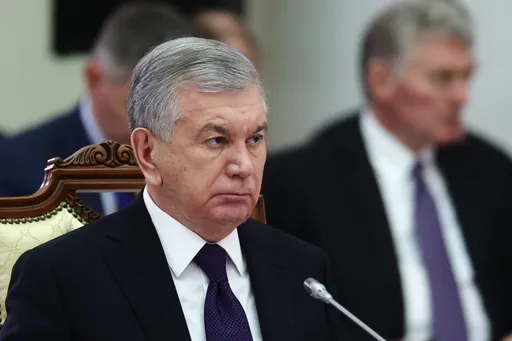US President Joe Biden's massive student debt cancellation plan has evoked mixed responses from indebted students, with some heaving a sigh of relief and others, who were expecting a complete loan forgiveness plan, partially dissatisfied.
"It's a good plan for low-income Americans but I think all student loans should be cancelled regardless of how much they owe. Just two years ago the government gave billions of dollars to companies so the economy wouldn't collapse during the Covid pandemic," Luis Torres, a political science student at the University of District of Columbia, toldTRT World.
"The government gives millions of dollars to Ukraine every day. If they can spend money on war, how can they not take students out of debt?" asked Torres, who owes around $10,000 and could see his debt slate wiped clean if the Biden plan survives possible court challenges.
On Wednesday, Biden announced students trying to pay off university loans will get $10,000 forgiven while acknowledging he was "not going to make everybody happy."
Under the relief plan, $10,000 will be cut from all loans owed by people earning a salary of less than $125,000. For some six million students from low-income families, who went to university with government aid known as Pell grants, the relief will be $20,000.
The White House estimates its plan could lead to about 20 million borrowers having their debt completely cancelled. Some 23 million Americans will still have student loan debt. The country’s federal student debt now tops $1.6 trillion.
As of now, more than 43 million people have federal student debt, with an average balance of $37,667, according to federal data. Nearly a third of borrowers owe less than $10,000, and about half owe less than $20,000.
Graduate student Liam Moore hailing the decision said the loan forgiveness was dangling at first but "it's nice to finally see it make it into the plan."
"I think that it will positively affect Americans because it will allow them to focus more on their needs than an extra bill to pay."
Biden's plan "marks the biggest and boldest action a president has ever taken to provide student debt relief to struggling families," said Rahna Epting, executive director of MoveOn, an advocacy group.
READ MORE:Biden unveils major student loan forgiveness plan
Biden ‘overpromised’
The proposed debt relief, however, falls far short of some Democrats' promise of complete loan forgiveness.
Many students said they were expecting complete loan relief.
"It's very disheartening to see that he (Biden) overpromised and is only forgiving $10,000 dollars, which is not enough for many students," Kenia Mazariegos, a content strategist and a recent master’s graduate from Columbia University, told TRT World.
"I don't think it's fair limiting the types of loans and also limiting people by salary because people who make $125,000 or less are not making much considering taxes," she said.
The debt doesn't only affect undergrad students but also casts a shadow on students who want to pursue a master’s degree, leaving them with a heavy burden to decide what to do and also massively limiting their options, she added.
"I think if I were any deeper in debt, I wouldn’t have taken up the master's degree because it wouldn't be financially viable," Hana Karkari, who studies art and history at the American University, told TRT World.
Welcoming Biden's plan, Karkari said that most people don't have a lot of options after they get a bachelor's degree because of the heavy debt, which ultimately "affects their decision."
"It's a step forward," Karkari said. "Acknowledging that many young Americans are in debt and need help might help them move forward and push back against tuition hikes."
Biden's main goal
Biden’s plan, however, will have to face a likely court challenge. Republicans who have rejected it argue it would power more inflation while benefitting many rich borrowers.
"If you’re saddled with debt, even as little as two or three thousand dollars, you make decisions differently. Cancelling debt lowers the cost of failure and anything that lowers the cost of failure increases innovation," William Hanff, a professor and student advisor at the University of the District of Columbia, told TRT World.
"It's great to have early career professionals burdened with less debt because deep down, debt is a means of social control."
Hanff said the proposal's main goal is to cancel the debts of many students who entered college but didn't finish their studies, which is the vast majority of students.
"In the US, more than 50 percent of people enter higher education, but only three percent or so finish, and the problem is you can end up not finishing your degree and still have the debt," Hanff said.
"This is what the Biden administration is targeting."
READ MORE:Americans brace for Biden decision on student loan waivers, payment pause























